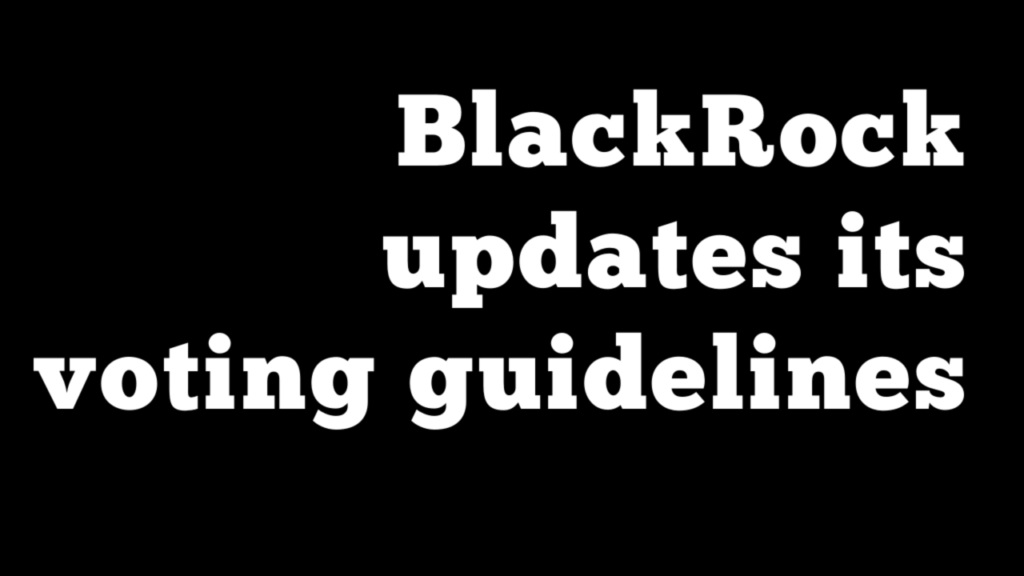BlackRock updates its voting guidelines

As noted in this PublicChatter.com blog by Perkins Coie’s Allison Handy, BlackRock released its latest proxy voting guidelines for U.S. securities a few days ago, as well as its Investment Stewardship Global Principles. Here are three things to know, courtesy of Allison:
1. The new guidelines remain consistent with BlackRock’s existing approach to engagement on board diversity. New for 2022, BlackRock has added an aspirational goal of at least one director who identifies as a member of an underrepresented group to its existing targets for companies of 30% diversity of membership and at least two directors who identify as female.
BlackRock defines “underrepresented group” as including (but not limited to) individuals identifying as Black or African American, Hispanic or Latinx, Asian, Native American or Alaska Native, or Native Hawaiian or Pacific Islander; individuals who identify as LGBTQ+; individuals who identify as underrepresented based on national, Indigenous, religious or cultural identify; individuals with disabilities; and veterans.
The bottom line for the board diversity policy is that failure to meet these goals does not necessarily result in a vote against nominating committee members. BlackRock has, and may in the future, vote against when “a company has not adequately accounted for diversity in its board compositions within a reasonable timeframe.”
2. In 2021, BlackRock called on companies to disclose a plan for how their business model will be aligned with a global goal of net zero greenhouse gas (GHG) emissions with 2050. For 2022, it encourages companies to “demonstrate that their plans are resilient under likely decarbonization pathways, and the global aspiration to limit warming to 1.5oC.” This policy recognizes that not all companies are equally positioned to transition their businesses at the same rate, but those with larger market caps are expected to act an accelerated rate.
BlackRock’s climate risk voting policy was also updated to encourage companies to include a focus on contributions to a “just transition” to net zero – “ensuring a reliable energy supply and protecting the most vulnerable from energy price shocks and economic dislocation.”
3. For 2022, BlackRock retains its ask that companies report in line with recommendations of TCFD, but has broadened its view on sustainability reporting standards. Rather than focusing only on SASB reporting standards, the updated policies recognize that some companies might report using standards other than SASB.
